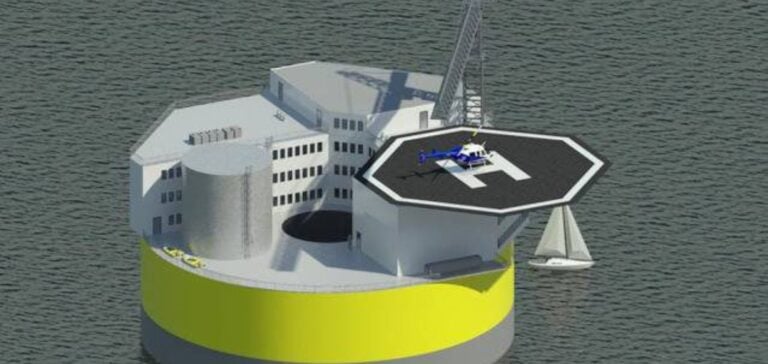Saipem and newcleo sign an agreement to explore the integration of nuclear technology in offshore oil and gas operations.
The collaboration aims to use newcleo’s lead-cooled fast neutron reactors (SM-LFR) to produce emission-free electricity and heat for offshore installations.
The aim is to carry out a feasibility study for the creation of floating prototypes.
This initiative could enable these units to be connected to the onshore power grid or to other users, thus diversifying sources of energy supply.
Optimizing offshore installations with nuclear power
The application of this technology aims to improve the energy efficiency of offshore installations, while limiting emissions.
Saipem seeks to combine its offshore expertise with newcleo’s advanced nuclear technology to create innovative solutions in the energy sector.
This approach is part of a drive to diversify energy sources and optimize existing infrastructures, without relying solely on renewable energies.
Technology for marine environments
newcleo’s SM-LFR reactors use passive safety systems that take advantage of natural forces, a feature suited to marine environments.
These reactors could enable more efficient use of uranium, including recycling of spent fuel, in line with the principles of a circular economy.
This technology aims to offer a robust solution for offshore installations, meeting growing energy needs while ensuring security of supply.
Outlook for Europe’s energy sector
The agreement between Saipem and newcleo marks the first attempt by European companies to apply this nuclear technology in an offshore context.
This partnership is a response to today’s energy challenges, offering an alternative to traditional energy production methods.
The collaboration is part of a wider search for innovative energy solutions in Europe, in response to growing pressures on energy security and emissions reduction.
The initiative comes just a few months after another alliance between newcleo and Viaro Energy, focused on reducing emissions from oil and gas infrastructure through advanced modular reactors.
The development of nuclear reactors for offshore applications could transform operations in the sector, offering diversified energy solutions tailored to today’s sustainability requirements.






















